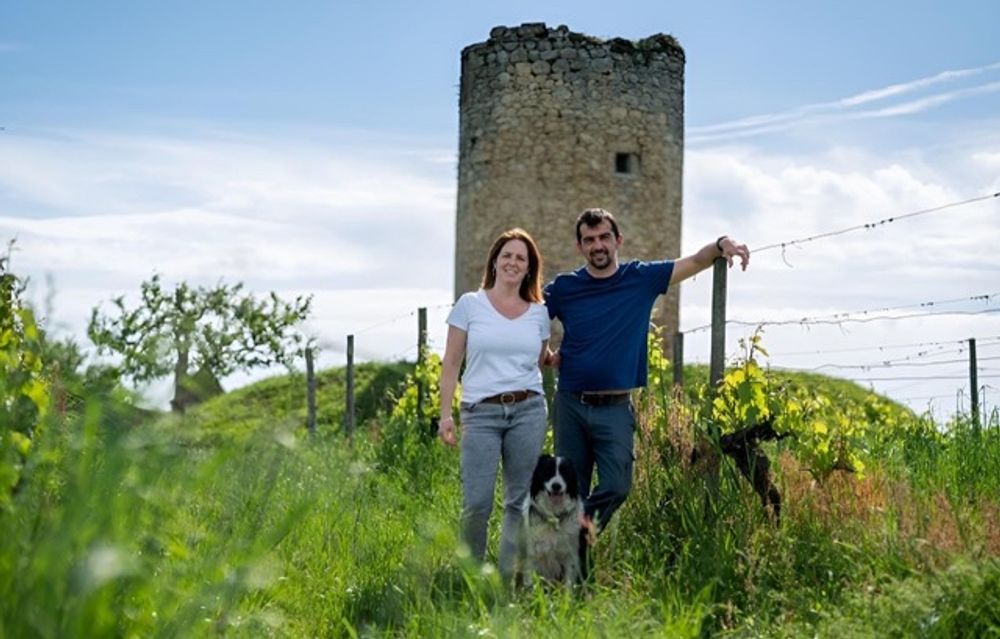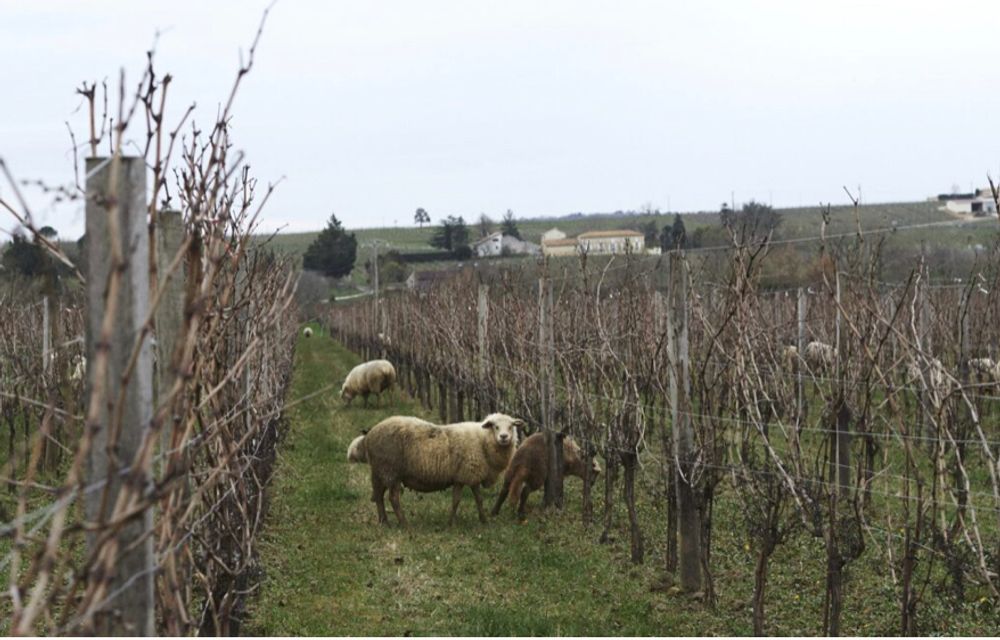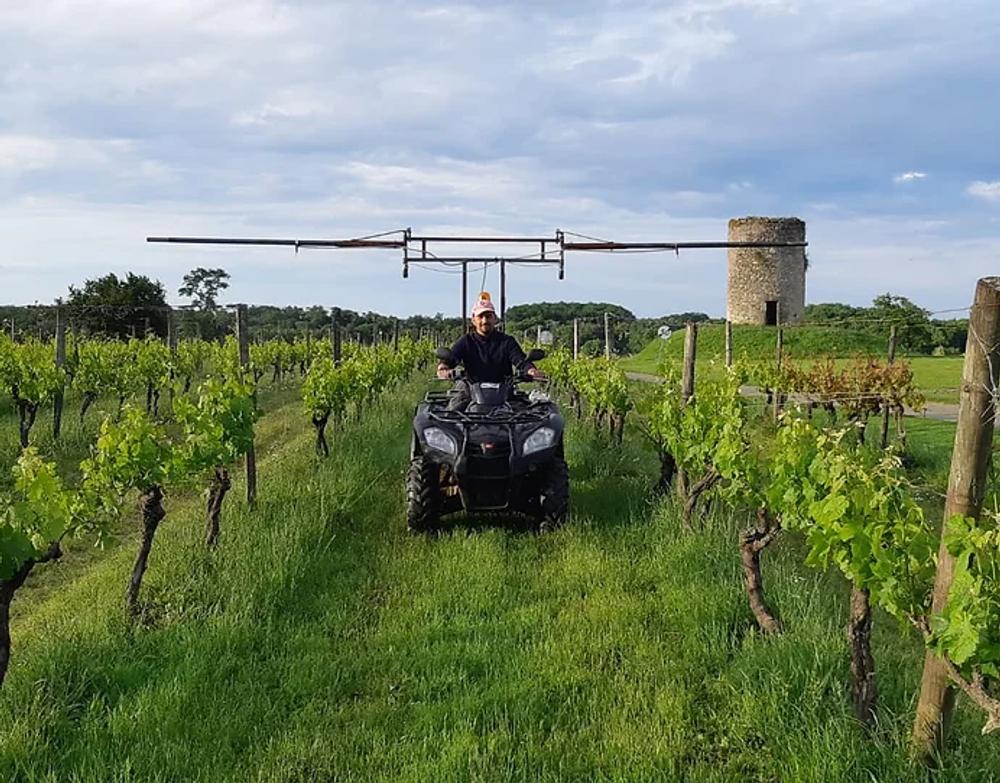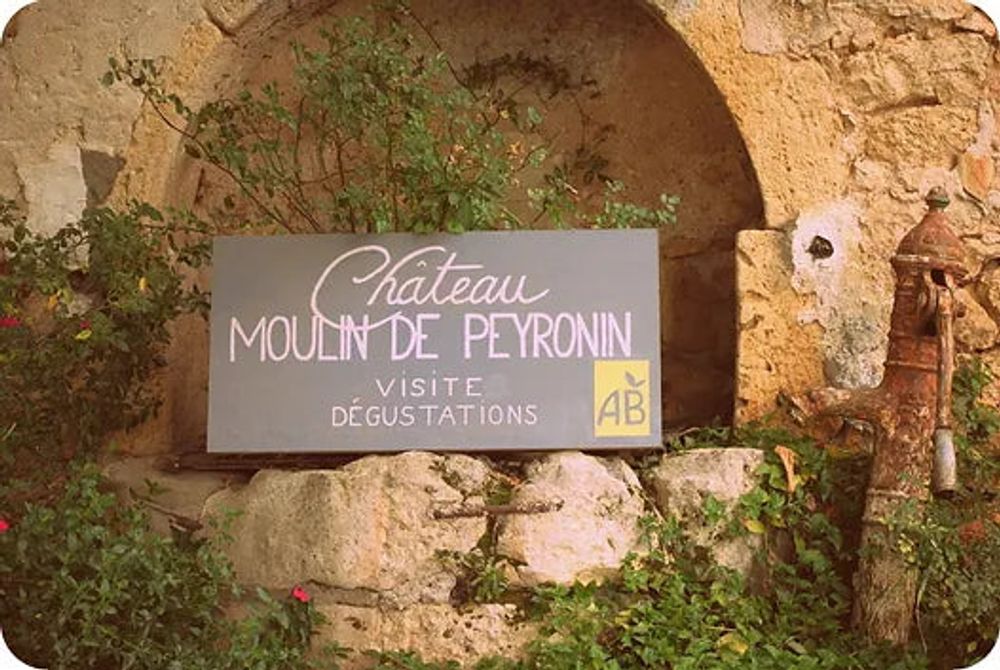How did you get into the wine industry?
After studying wine with my wife at the Lycée Agricole de Libourne in Montagne, where our common passion for wine brought us together, we decided to embark on a wine growing adventure in 2006.
Why did you want to be a winemaker?

Franck and Véronique Verral are looking to work with biodiverstiy at Château Moulin de Peyronin
I have always been drawn to the land both through my family’s livestock farm in Landes and been interested in wine thanks to my uncle Pierre Chariol who is winemaker at Chateau de Lescours in Saint Emilion.
What is it about being a winemaker you find the most rewarding?
The freedom to create, the shaping of a vine from its pruning to the harvesting and processing all its fruit.
What is the most challenging aspect of being a winemaker?
The most stimulating aspect of the job is the constant challenge of adapting to new issues linked to the climate and changing consumer trends.
Then there is the extremely heavy workload and the unpredictability of our annual harvest and how much production we can rely on. Especially with such a changing climate. It is even harder to predict.
What is your winemaking philosophy and describe the style of wines you are looking to make?
My wife Véronique and I bought Chateau Moulin de Peyronin in 2006. It's a small family estate with 22 hectares of land, 12 of which are planted with vines. We want to keep this model of just 15 hectares and diversify our business by developing the estate's hospitality activities.

Château Moulin de Peyronin converted to biodymanic winemaking in 2017
From the outset, we have been working with organic farming and biodynamic farming since 2017. Our philosophy is to use minimal inputs in our wines. Today, we only use sulphur in our wines and we also have a range of natural wines. The idea is to have pure wines that reflect their terroirs, without any artificial influence.
We were seduced by this vision of biodynamic agriculture. Our goal is to give us all the means to reflect in our wines, the richness of our terroir and the work of man.
Biodynamics resonates in our minds as a farm that must be consistent with the environment, not the environment in general, but the environment around it.
For us, biodynamics is synonymous with biodiversity, agroforestry, respect for the soil and the environment.
Has that changed at all over the years and why?
Yes, the philosophy has changed, even if that's not the right word. I would say it's evolved. When we left school and started up, we wanted to make wines with a minimum of inputs, but we didn't have the keys.

After a lot of trial and error we have been able to master our winemaking methods and today we are very happy with the wines we are making. But we're still experimenting. I think we're one of the few estates to produce two Demeter-certified Bordeaux crémants.
What impact is climate change having on you and what are you doing to mitigate it?
We're finding it increasingly difficult to complete a full harvest. We often get excessive rainfall in the spring, which results in numerous attacks of mildew that we're finding increasingly hard to control. Then there is the almost annual risk of spring frosts, and we now look to prune as late as possible to avoid this. We also have higher and higher degrees of alcohol in our wines with the excessive heat in the summer.
Which is why we are looking to expand our range and produce more rosé or crémant rosé. We were able to show our crémants at the Bordeaux Experience event in London in May.
What steps are you taking around sustainability and biodiversity?
For more than 15 years we have been planting hedges and trees around our plots of vineyard to promote the natural vegetation on our land. We also have over five hectares of land that we have left on the property in order to promote biodiversity and development a wide range of auxiliary flora and fauna.
There are big changes happening with winemaking in Bordeaux - what do you see as the most important?
Bordeaux winemaking has clearly had its moments of glory over the years, but it is now in danger of having rested on its laurels and has changed little in recent years.

That, though, is now changing and we are seeing more recent developments in light of our wine crisis, so hopefully it is not too late. But we know many growers around us who no longer know what to do and are throwing in the towel. We are not among them.
What outstanding potential do you think the region still has?
We have an exceptional cultural wealth and some very beautiful terroirs in which to make great wines, so it's up to us to review our image and what we stand for to make consumers want to believe in Bordeaux again. There is a great opportunity to continue to develop tourism and promote our wines.
What are your main export markets and which areas are growing?
We export to around eight countries, but in small quantities. We are staring to export a little to the UK and then have importers inSwitzerland, Ireland, Japan, the US, Reunion Island and Germany. We would like to develop a little more in European countries.
* You can find out more about Château Moulin de Peyronin at its website here.
































